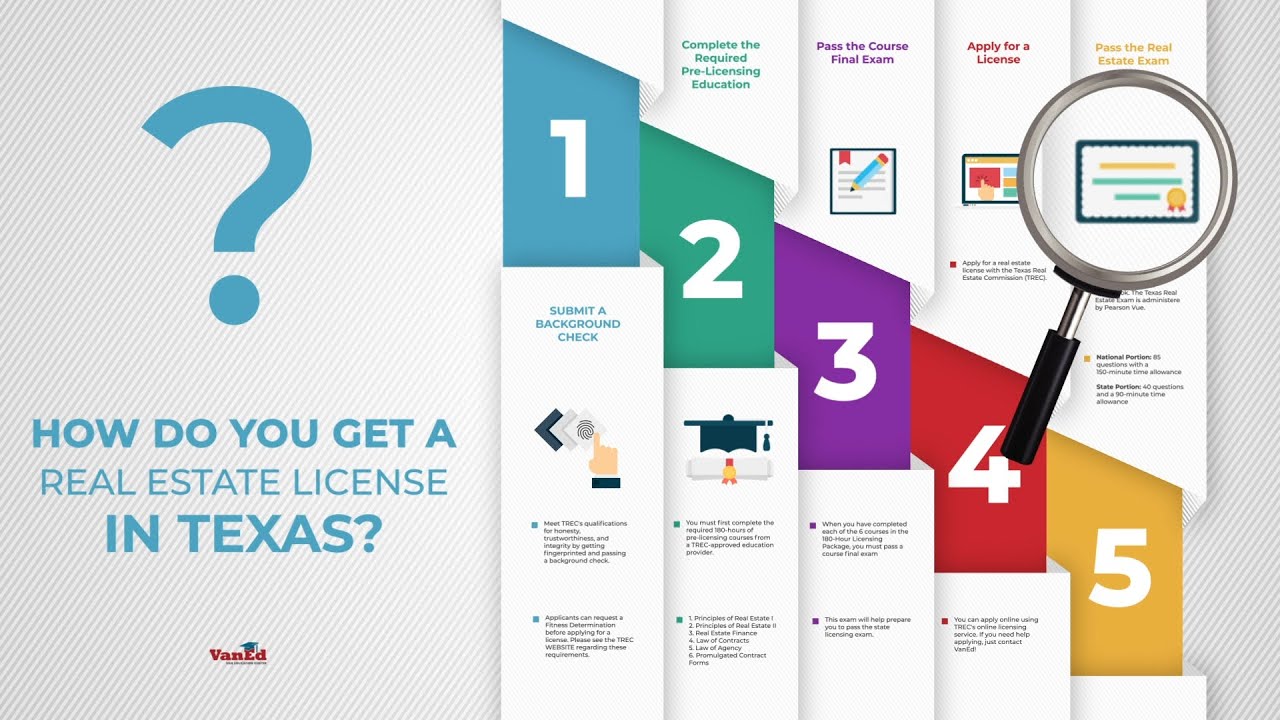
A real estate designation is a great way for you to stand out from the rest and show potential clients that your are committed to meeting their needs. A real estate certification is one that you can earn after completing specific coursework and proving your knowledge and skills in the field.
There are many different designations that you can choose from, each with its own benefits and payoff. The best designations will make your stand out and help you concentrate on a niche. They also show that clients can trust you with their real estate needs.
ABR – Accredited Buyers Rep Designation
This designation is an excellent option for agents looking to get ahead in the highly competitive buyer's market. Agents who have earned this designation will be able to assist buyers in every aspect of the home purchase process, including mortgage financing and closing. ABR designations can help you differentiate yourself from other buyers agents in busy markets. This is especially important for hot markets where all buyers agents are trying to outdo one another.

SRES - Senior Real Estate Specialist Designation
This niche program helps agents to meet the real estate needs for older Americans (50+). In addition to providing information on how seniors can meet their housing and retirement goals, this designation will give you access to specialized marketing materials, consumer newsletters, scripts and concepts for contacting clients with concerns about downsizing, living on a fixed income, and finding a home closer to family.
CRS - Certified Residential Specialist Designation
The CRS is a highly desired designation that demonstrates professionalism and expertise in the residential property industry. It is an ideal choice for ambitious managers and sales agents looking to improve their career. It requires experience, transaction volume, and membership in both NAR and RRC.
GRI - Graduate, REALTOR(r) Institute Designation
GRI is an excellent certification in real estate. This will give you extensive training on legal and technological issues, professional standards, and how to sell. This certification will make you a well-respected professional, who is current on legal developments and industry trends.
PMN - Performance Management Network Designation
PMN is an excellent real estate certification for agents who wish to develop their leadership skills. This certification will improve your negotiation skills, networking and referral skills as well as personal performance.

RCE - Certified Executive Designation by REALTOR(r).
RCE is the only designation that is specifically tailored for association executives. RCE designationes are motivated professionals who are goal-oriented, have a commitment to continuing professional development, and are committed to their profession.
SRS - Seller Representative Specialist Designation
SRS certification is another great option that will help you provide exceptional service to your seller clientele. This will allow your clients to receive a better service and help them sell faster.
FAQ
Is it better to buy or rent?
Renting is often cheaper than buying property. But, it's important to understand that you'll have to pay for additional expenses like utilities, repairs, and maintenance. There are many benefits to buying a home. For instance, you will have more control over your living situation.
What are the cons of a fixed-rate mortgage
Fixed-rate mortgages have lower initial costs than adjustable rates. Additionally, if you decide not to sell your home by the end of the term you could lose a substantial amount due to the difference between your sale price and the outstanding balance.
How do I eliminate termites and other pests?
Your home will eventually be destroyed by termites or other pests. They can cause serious destruction to wooden structures like decks and furniture. It is important to have your home inspected by a professional pest control firm to prevent this.
Should I use a broker to help me with my mortgage?
Consider a mortgage broker if you want to get a better rate. Brokers can negotiate deals for you with multiple lenders. Brokers may receive commissions from lenders. Before you sign up for a broker, make sure to check all fees.
Should I rent or buy a condominium?
If you plan to stay in your condo for only a short period of time, renting might be a good option. Renting will allow you to avoid the monthly maintenance fees and other charges. On the other hand, buying a condo gives you ownership rights to the unit. You can use the space as you see fit.
What are the most important aspects of buying a house?
The three most important factors when buying any type of home are location, price, and size. Location refers to where you want to live. Price is the price you're willing pay for the property. Size is the amount of space you require.
What flood insurance do I need?
Flood Insurance covers flooding-related damages. Flood insurance protects your belongings and helps you to pay your mortgage. Learn more information about flood insurance.
Statistics
- It's possible to get approved for an FHA loan with a credit score as low as 580 and a down payment of 3.5% or a credit score as low as 500 and a 10% down payment.5 Specialty mortgage loans are loans that don't fit into the conventional or FHA loan categories. (investopedia.com)
- Private mortgage insurance may be required for conventional loans when the borrower puts less than 20% down.4 FHA loans are mortgage loans issued by private lenders and backed by the federal government. (investopedia.com)
- This seems to be a more popular trend as the U.S. Census Bureau reports the homeownership rate was around 65% last year. (fortunebuilders.com)
- Some experts hypothesize that rates will hit five percent by the second half of 2018, but there has been no official confirmation one way or the other. (fortunebuilders.com)
- The FHA sets its desirable debt-to-income ratio at 43%. (fortunebuilders.com)
External Links
How To
How to manage a rental property
Although renting your home is a great way of making extra money, there are many things you should consider before you make a decision. We'll help you understand what to look for when renting out your home.
Here are the basics to help you start thinking about renting out a home.
-
What is the first thing I should do? Before you decide if you want to rent out your house, take a look at your finances. If you are in debt, such as mortgage or credit card payments, it may be difficult to pay another person to live in your home while on vacation. You should also check your budget - if you don't have enough money to cover your monthly expenses (rent, utilities, insurance, etc. This might be a waste of money.
-
How much will it cost to rent my house? There are many factors that influence the price you might charge for renting out your home. These factors include the location, size and condition of your home, as well as season. It's important to remember that prices vary depending on where you live, so don't expect to get the same rate everywhere. Rightmove has found that the average rent price for a London one-bedroom apartment is PS1,400 per mo. If you were to rent your entire house, this would mean that you would earn approximately PS2,800 per year. Although this is quite a high income, you can probably make a lot more if you rent out a smaller portion of your home.
-
Is it worth it? There are always risks when you do something new. However, it can bring in additional income. You need to be clear about what you're signing before you do anything. Renting your home won't just mean spending more time away from your family; you'll also need to keep up with maintenance costs, pay for repairs and keep the place clean. These are important issues to consider before you sign up.
-
Are there benefits? Now that you have an idea of the cost to rent your home, and are confident it is worth it, it is time to consider the benefits. There are many reasons to rent your home. You can use it to pay off debt, buy a holiday, save for a rainy-day, or simply to have a break. It's more fun than working every day, regardless of what you choose. You could make renting a part-time job if you plan ahead.
-
How can I find tenants After you have made the decision to rent your property out, you need to market it properly. Make sure to list your property online via websites such as Rightmove. Once potential tenants contact you, you'll need to arrange an interview. This will allow you to assess their suitability, and make sure they are financially sound enough to move into your house.
-
What are the best ways to ensure that I am protected? If you're worried about leaving your home empty, you'll need to ensure you're fully protected against damage, theft, or fire. In order to protect your home, you will need to either insure it through your landlord or directly with an insured. Your landlord may require that you add them to your additional insured. This will cover any damage to your home while you are not there. If your landlord is not registered with UK insurers, or you are living abroad, this policy doesn't apply. In such cases you will need a registration with an international insurance.
-
It's easy to feel that you don't have the time or money to look for tenants. This is especially true if you work from home. You must put your best foot forward when advertising property. You should create a professional-looking website and post ads online, including in local newspapers and magazines. Also, you will need to complete an application form and provide references. Some people prefer to do everything themselves while others hire agents who will take care of all the details. You'll need to be ready to answer questions during interviews.
-
What should I do once I've found my tenant? If there is a lease, you will need to inform the tenant about any changes such as moving dates. If this is not possible, you may negotiate the length of your stay, deposit, as well as other details. You should remember that although you may be paid after the tenancy ends, you still need money for utilities.
-
How do I collect the rent? You will need to verify that your tenant has actually paid the rent when it comes time to collect it. If your tenant has not paid, you will need to remind them. After sending them a final statement, you can deduct any outstanding rent payments. If you're having difficulty getting hold of your tenant you can always call police. They won't normally evict someone unless there's been a breach of contract, but they can issue a warrant if necessary.
-
What can I do to avoid problems? Although renting your home is a lucrative venture, it is also important to be safe. Install smoke alarms, carbon monoxide detectors, and security cameras. It is important to check that your neighbors allow you leave your property unlocked at nights and that you have sufficient insurance. You should not allow strangers to enter your home, even if they claim they are moving in next door.